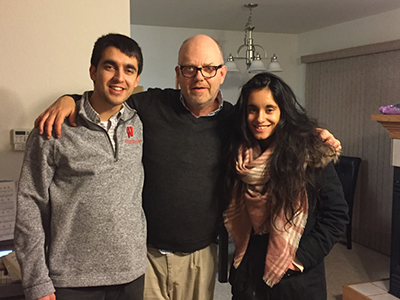WIDA News Extra April 2020

Dear WIDA Community,
Lately I’ve heard concerns about the time out of school that multilingual learners (MLLs) are facing right now. Usually these concerns begin with “won’t they fall further behind in learning English?” While certainly gaining English proficiency is important, I’m equally if not more concerned about all the subject matter learning MLLs are missing. That subject matter learning includes the language and literacy skills woven together with content and conceptual knowledge. It’s all part of a package that helps MLLs master the academic discourses that allow them to “walk the walk” and “talk the talk” when they move on to college and careers. And while many schools are continuing to deliver instruction online, clearly the opportunities for meaningful engagement in school learning that also further academic discourses and literacies our kids need is challenged by our current situation.
That aside, at WIDA we like to focus on what teachers and parents CAN DO to move the next generation of learners forward. I think this less than ideal time nonetheless offers opportunities we should seize. I am reminded of my days working with teachers of Hmong students in Wisconsin and the stories they told about the first generation that came in the 1970s and 1980s versus second and third generations. Surprisingly, the first generation often succeeded academically while levels of underachievement and dropout rose with their children. What did that first generation have that the second or third lacked? While in refugee camps sometimes for years awaiting visas to the US, that first group told rich cultural stories to their children. It was an opportunity to develop very strong oral language skills and convey family histories that give kids a stronger sense of who they are and who they might become.
Now we are presented with a reality not unlike those first generation Hmong families where we are spending more time than ever in our homes with family members. Please urge your students and their families to take advantage of this time to convey important family stories orally, and perhaps even sing some songs, in their home languages. Where possible, storybooks and reading together is time very well spent too. If the books are in English it’s still worth having discussions about them in the home language as comparisons with family experiences can be made. These rich cultural and linguistic interactions can bolster children’s sense of themselves and their primary language skills. Research supports that ultimately it is easier to master a second (or third) language and school learning when your primary language, culture, and sense of identity are stronger.
To help educators promote the importance of home language with the students and families they serve, we’ve developed a visual resource in English and Spanish.
Tim Boals,

WIDA Founder and Director





